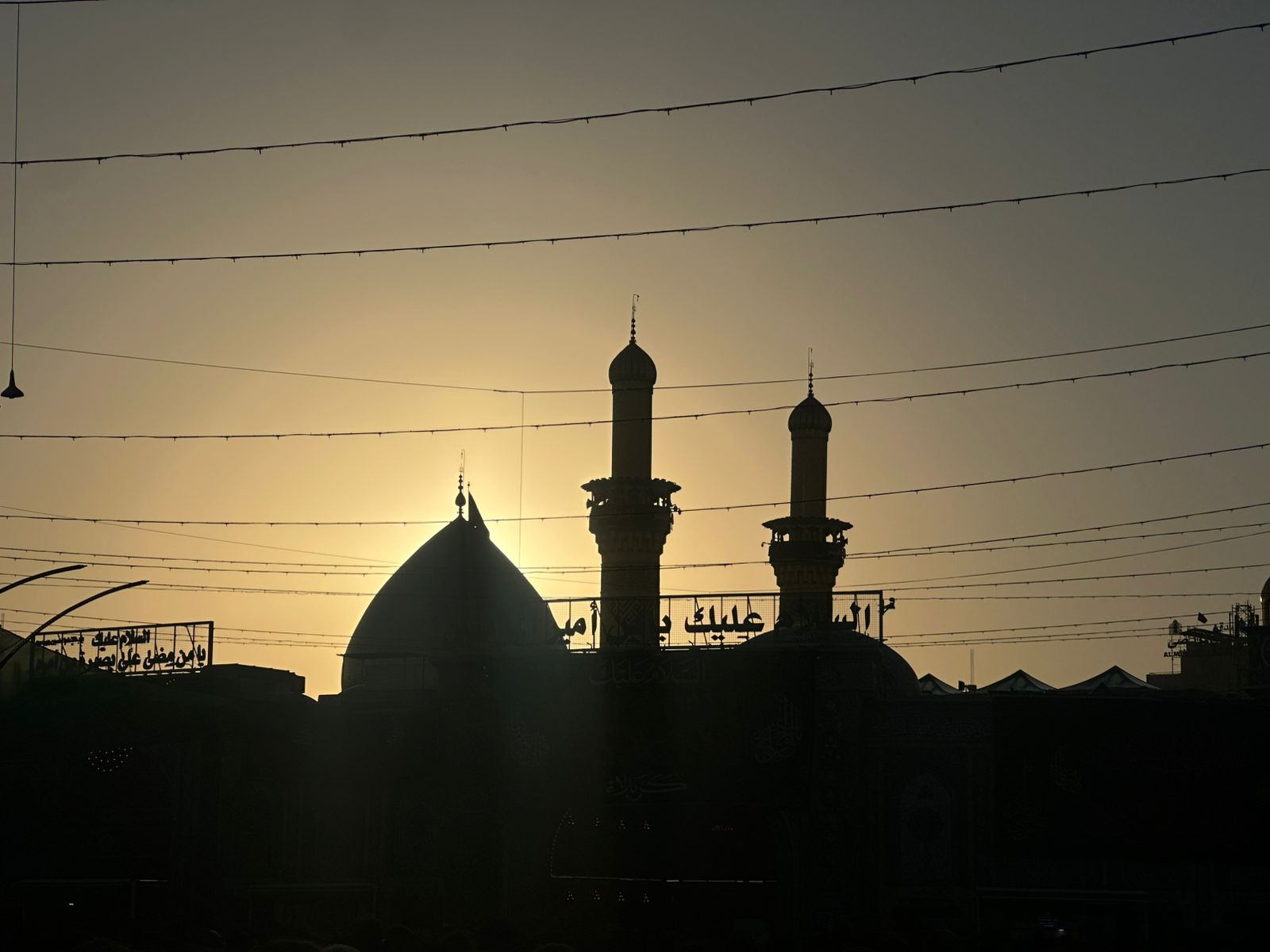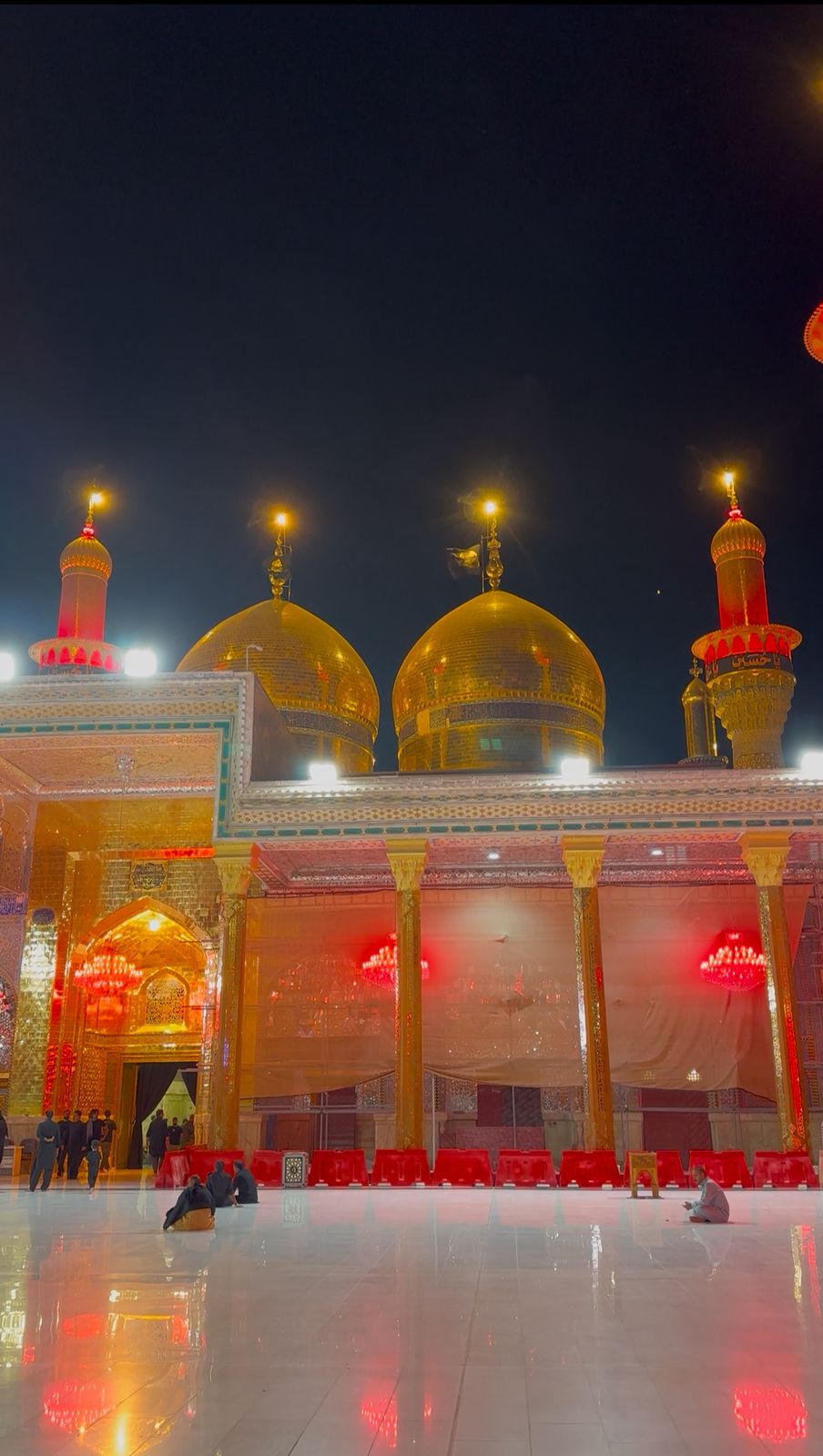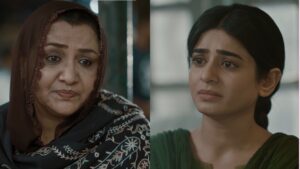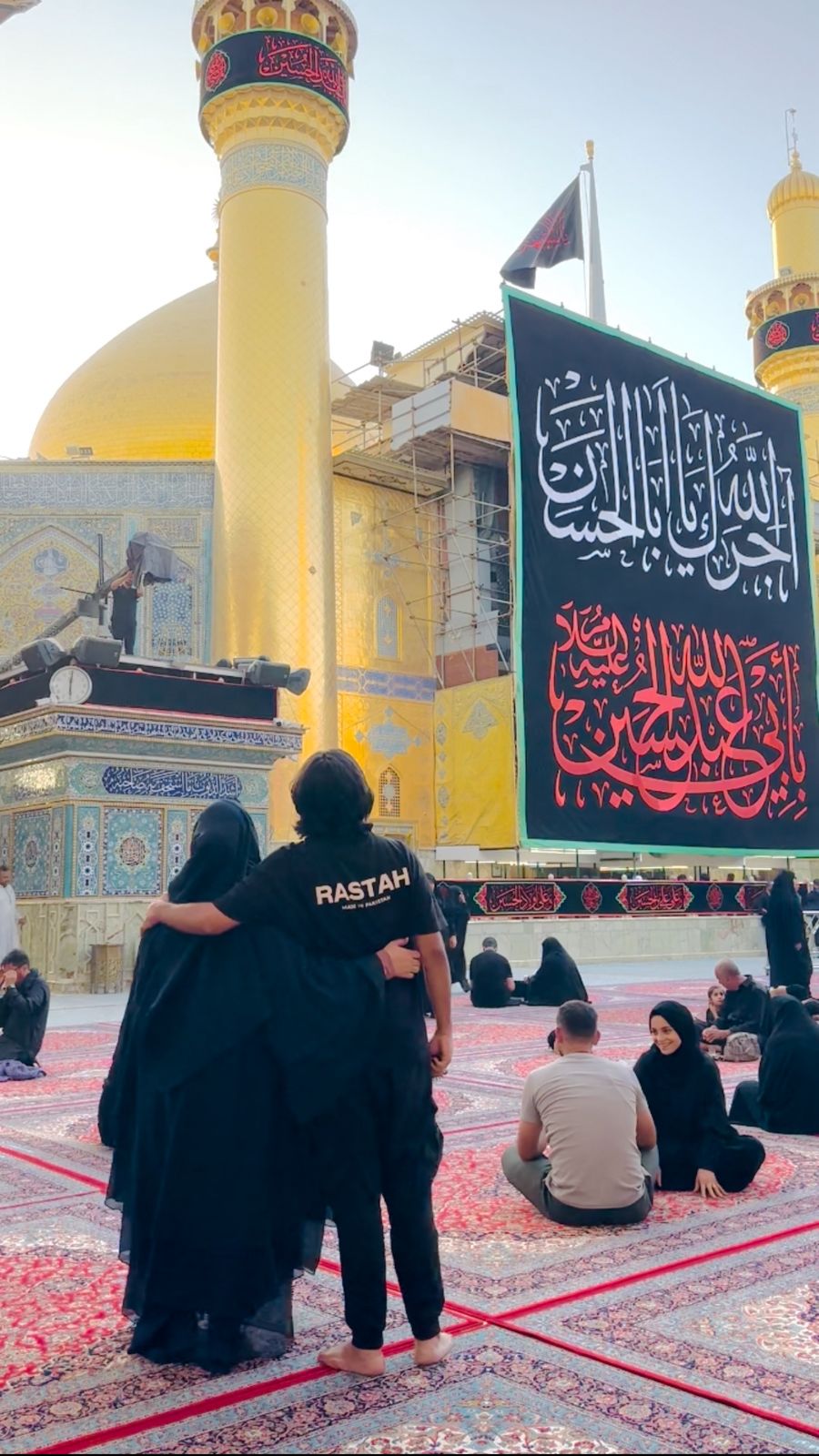
Ghazi Khan is a Lahore-based fashion and lifestyle publicist who, for the past seven years, has worked with some of Pakistan’s top artists and brands. Amid the glamour of his industry, he has never allowed it to compromise his faith. His Karbala stories are a testament to the unapologetic way he follows the path of love. This piece offers an insight into his devotion and what Karbala means to him.
In an industry draped in sequins, spotlights, and ephemeral highs, it’s easy to lose one’s center. The fashion world — vibrant, opulent, and ceaselessly demanding — has been my professional playground. I know its language, its rhythm, its seduction. But amid all the shimmering lights and cultivated personas, there’s one truth I’ve never shied away from: Love of the Ahl-e-Bait (AS).
Let the world whisper. Let folks wonder how someone from the most glamour-obsessed corners of the creative world can openly weep at the name of Hussain. I wear my divine obsession like a badge — unapologetic, untamed, and undiluted. My heart belongs to the family of the Prophet Muhammad (SAWW), and in every beat, Karbala calls. Call me mad, many have. But I do not bend to what this industry expects of me. I cry openly for Hussain(as). I chant his name louder than I praise any designer. So this piece isn’t about a trend or a campaign — it’s about the most real thing I know, LOVE.
Every year as Muharram nears, I feel the same pull—gentle, sacred, and unstoppable. It isn’t just a journey. It is a calling — my travel back home, to the shrine of Imam Hussain (AS). This year’s pilgrimage was special in its own ways. I was rejoining an old group which my father used to go with prior to his demise. My first visit to Karbala was with them as well.
I went with the Sangat of Haveli Mureed Shah, a revered and historic azadari group from Multan known for its deep-rooted love for the Ahl-e-Bait(sa). Their simplicity, humility, and their absolute devotion moves me to tears. Led by Mr. Alamdar Shah, a man of luminous character and unwavering belief, this group held me like family. From the eldest to the youngest, they quickly recognized me because of the love and respect they had for my father.
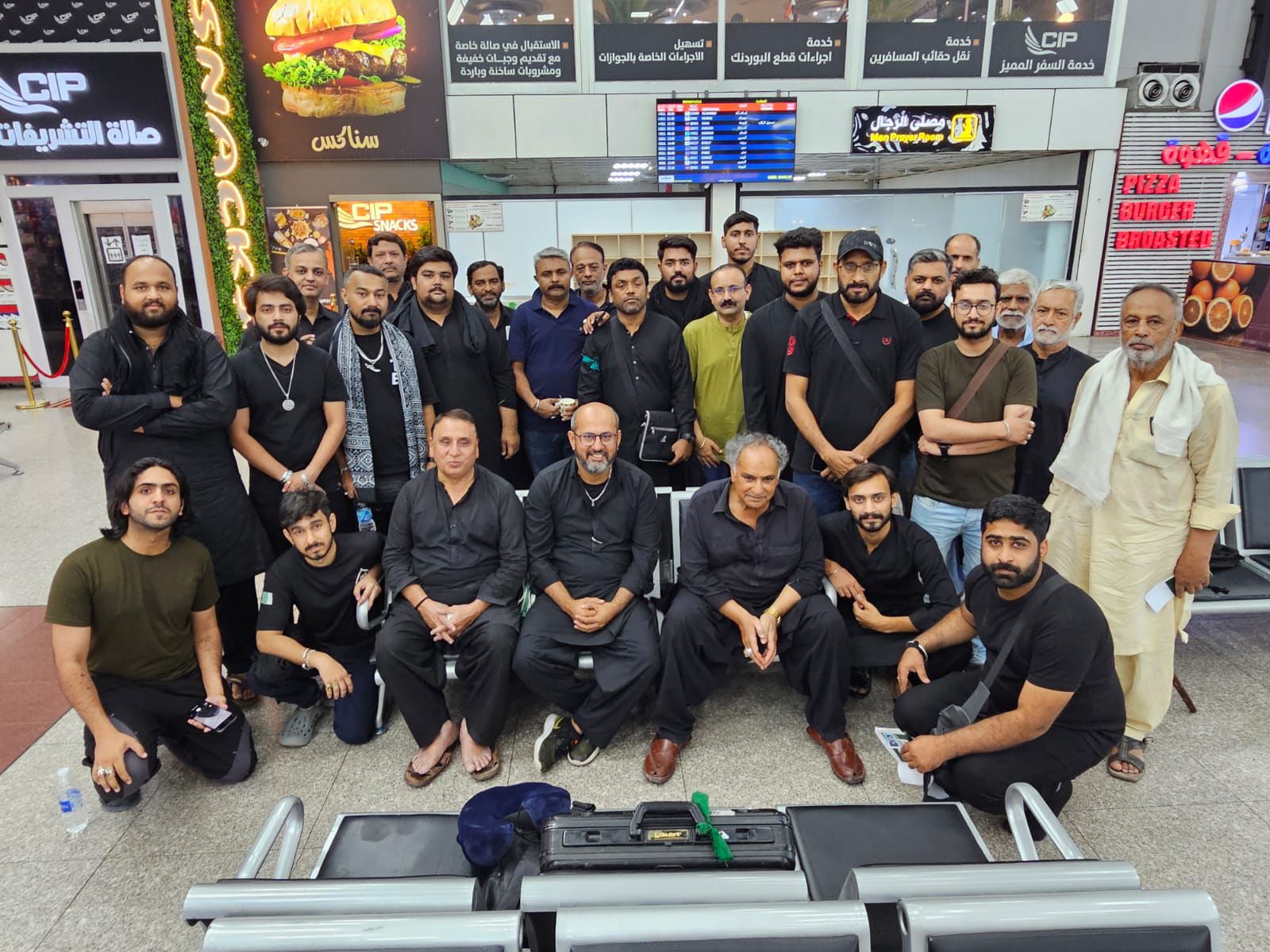
Karbala, for me, is everything. It is the soil where I have found God. It is where I grieve, where I heal, and where I am reminded of who I truly am. Karbala during Ashura is a universe unto itself. It isn’t just a city; it’s a soul-state. As we approached, starting from Najaf — the city of Imam Ali (AS), the Lion of God — and then edge closer toward Karbala, something shifted inside me. Every mile shed a layer of ego. Every breath filled with purpose. I had a realization in that moment that it wasn’t me who longed to come. In reality, it was Imam Hussain (AS), His Holy Sister Um- Al- Masaib (SA), their brother Hazrat Abbas (as), their children, the 72 Martyrs of Karbala, waiting to welcome me.
And then, the golden domes appeared—Imam Hussain (AS) and Hazrat Abbas (AS)—shimmering under the sunlight like an ethereal beacon. That first glimpse takes your breath away. Only Karbala has ever offered me the stillness I truly crave. The kind that sits inside your chest and says, “You are safe. You are home.”
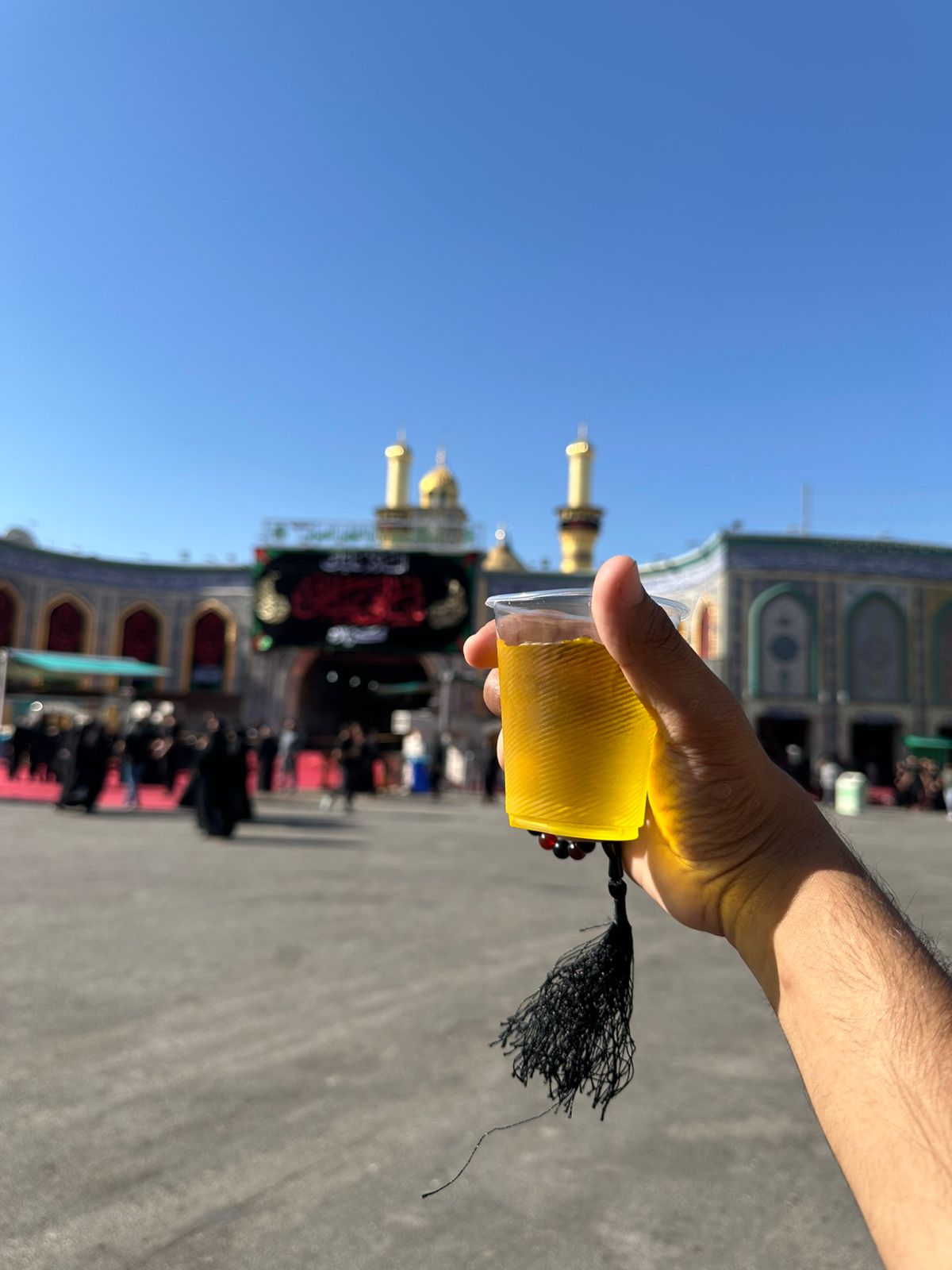
We arrived in the city on 6th Muharram and I could just feel the atmosphere around me beginning to intensify.
6th Muharram: While groups of people from all around the world are still continuously coming in their own unique ways, mourners link this day to the martyrdom of Shahzada Ali Asghar (as), the 6-month old martyr, son of Imam Hussain (as). Every year people bring baby carts, made of golds and jewels to present in front of the Holy Household.
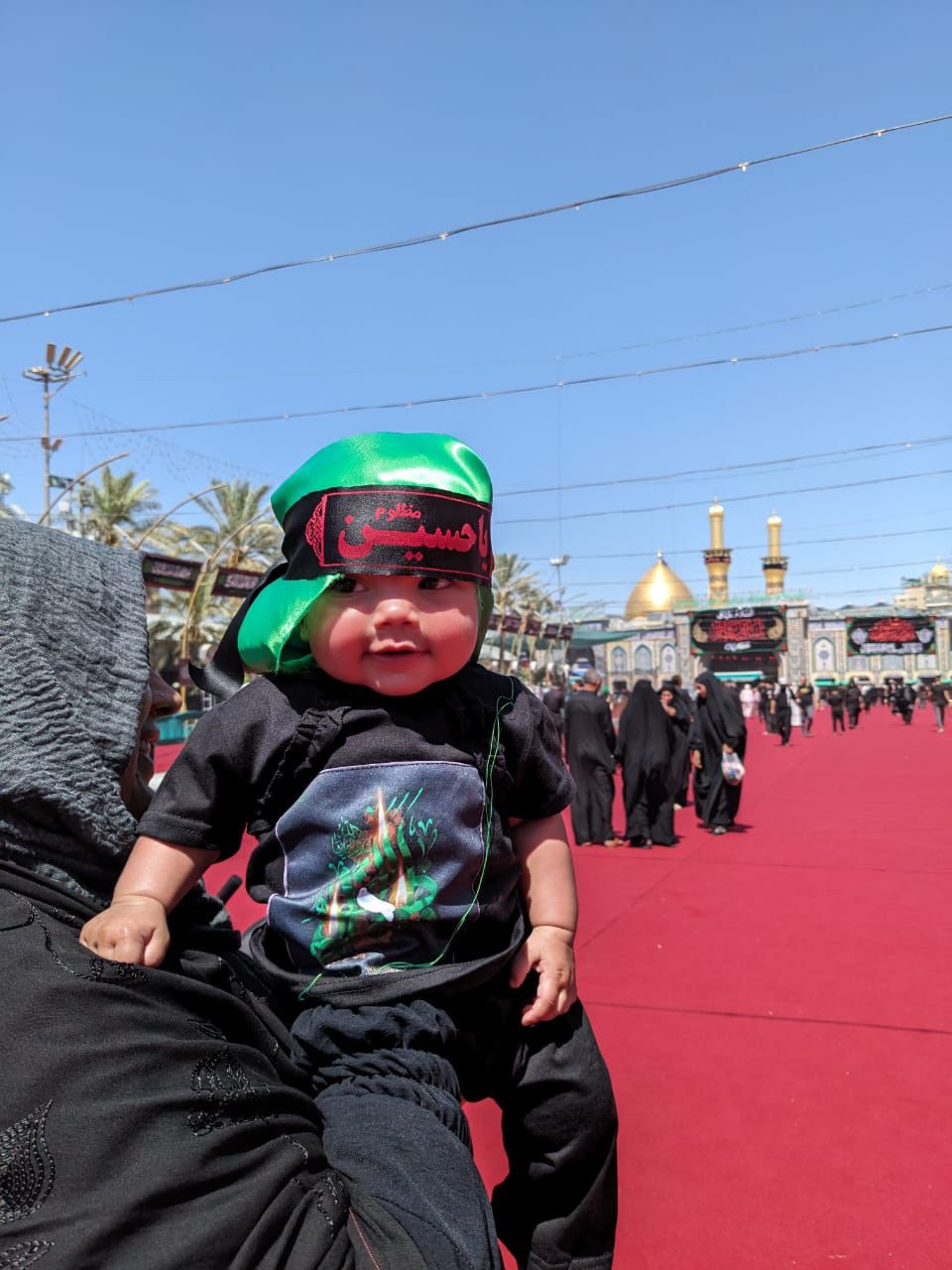
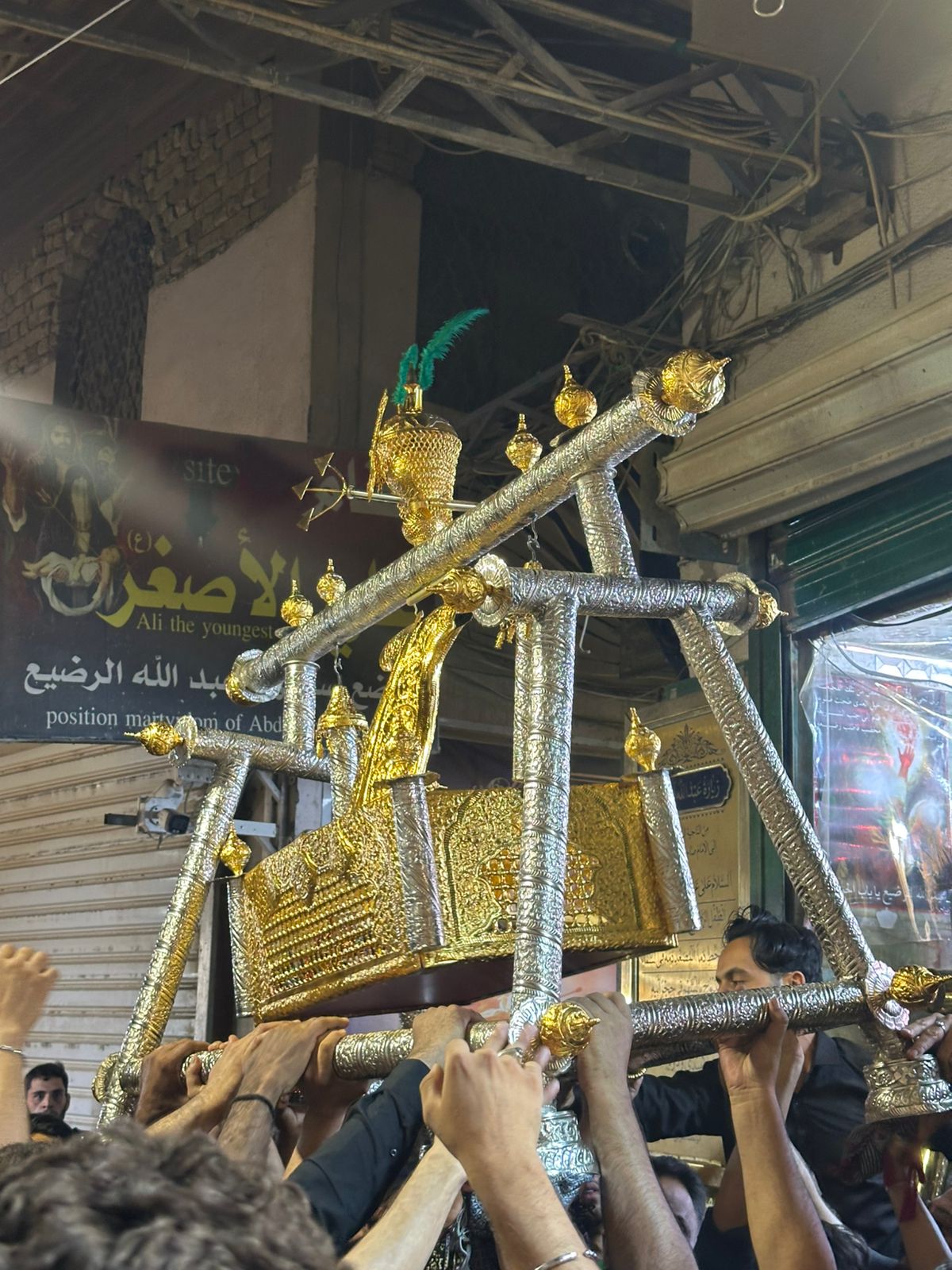
7th Muharram: Associated with the 13-year-old son of Imam Hassan (as), who had just gotten married and was killed in such a way that Imam had to pick up the pieces of severed body and put it in a sack. On this day, me and my family went to the camps of Ahl e Bait (as) to present the Alam we had brought for Shahzada Qasim (as). Pakistanis from all around the globe take out their juloos accompanied by accessories of a Mehndi event. There is deep rooted pain in every tradition, you just need to be able to feel it.
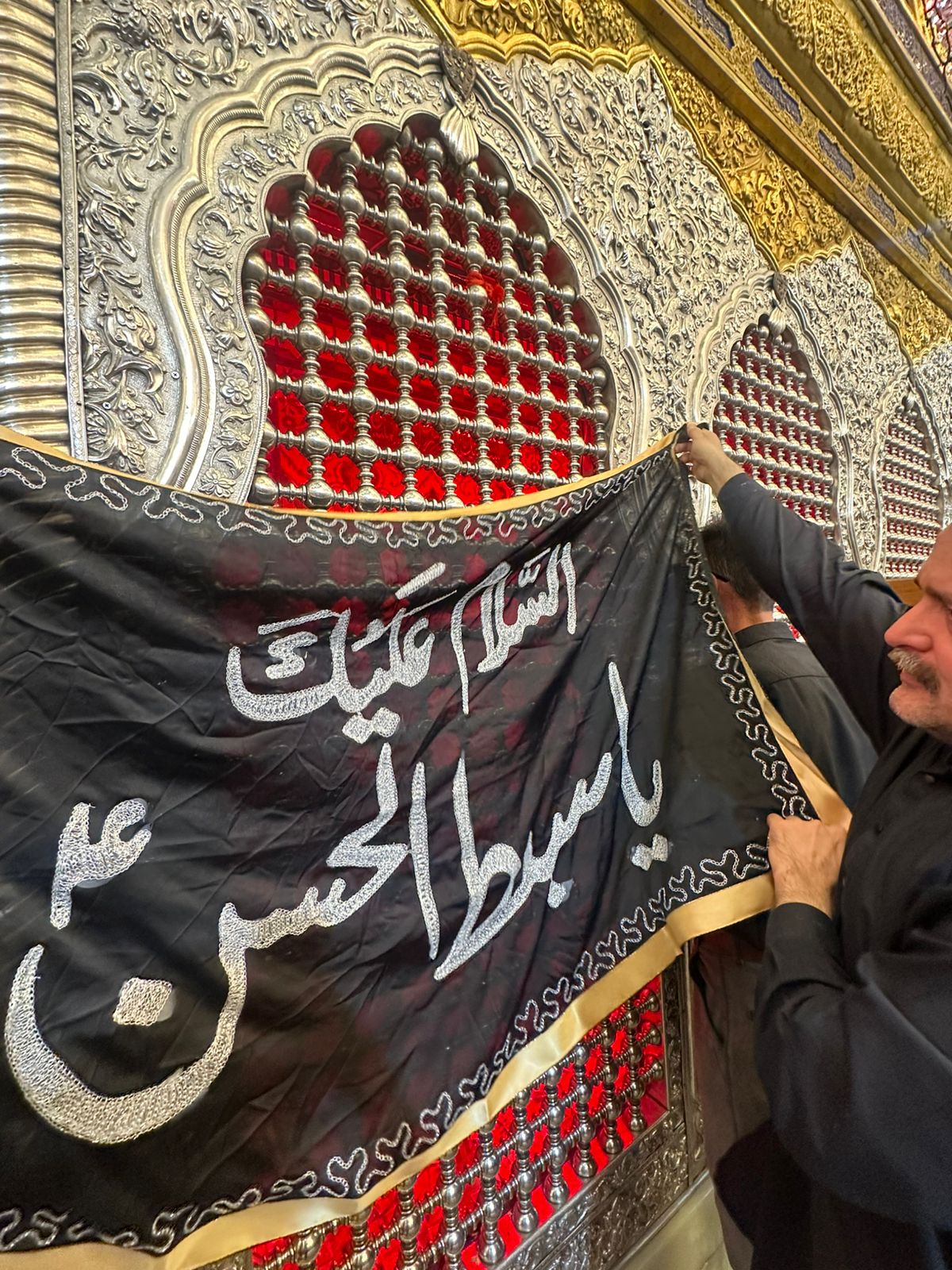
8 and 9th Muharram (Shab-e-Ashoor): We remember the tragedies of Hazrat Abbas (as) and Shahazada Ali Akbar (as) respectively. Shab e Ashoora; known as the night of loyalty, it commemorates Hazrat Abbas (AS), the moon of the Hashemite family. No one sleeps until the Fajr azaan, famously known as Azaan e Ali Akbar. Azaadari intensifies. Silence descends over Karbala as mourners pray and weep into the hours, knowing what dawn will bring.
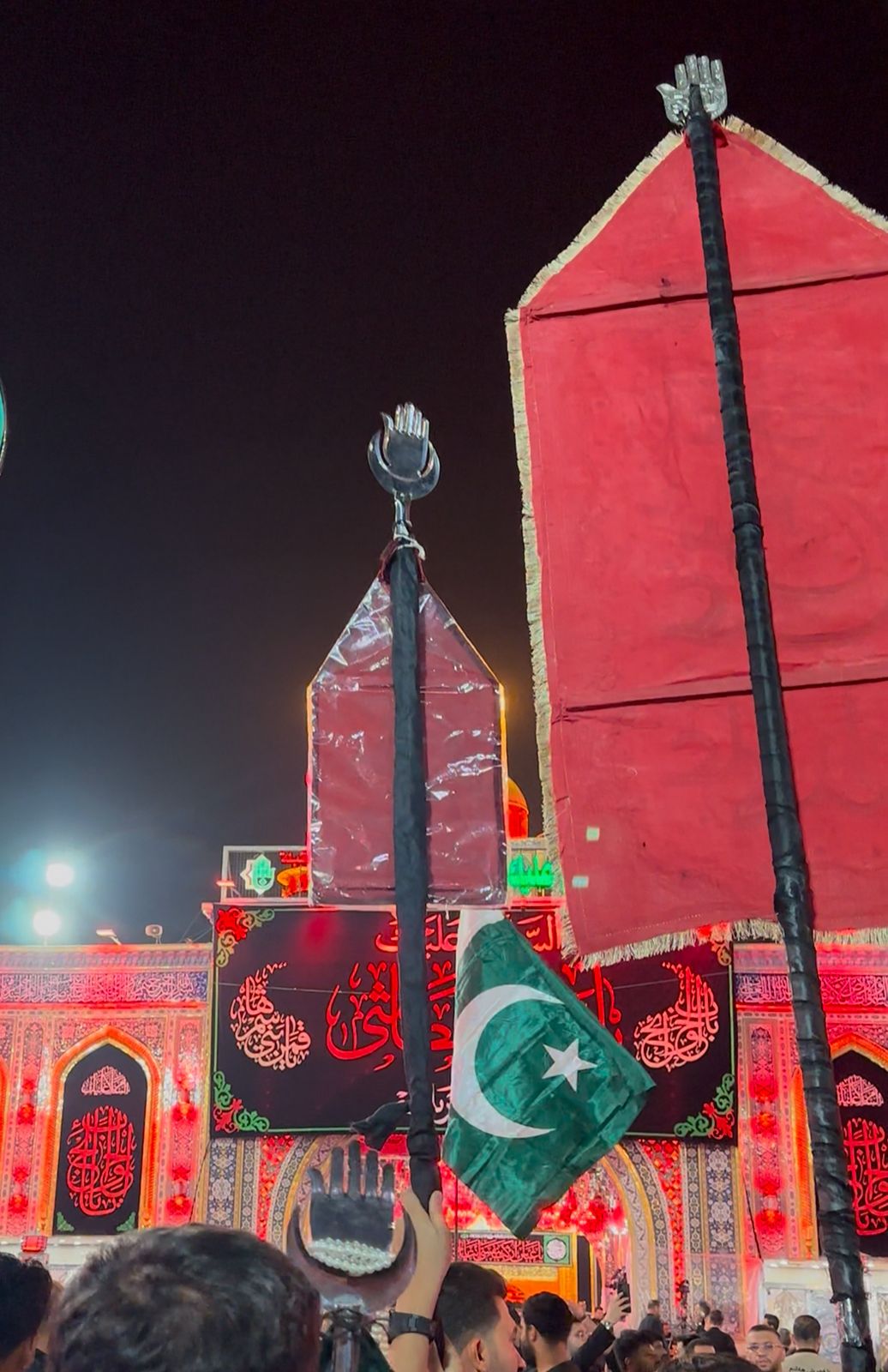
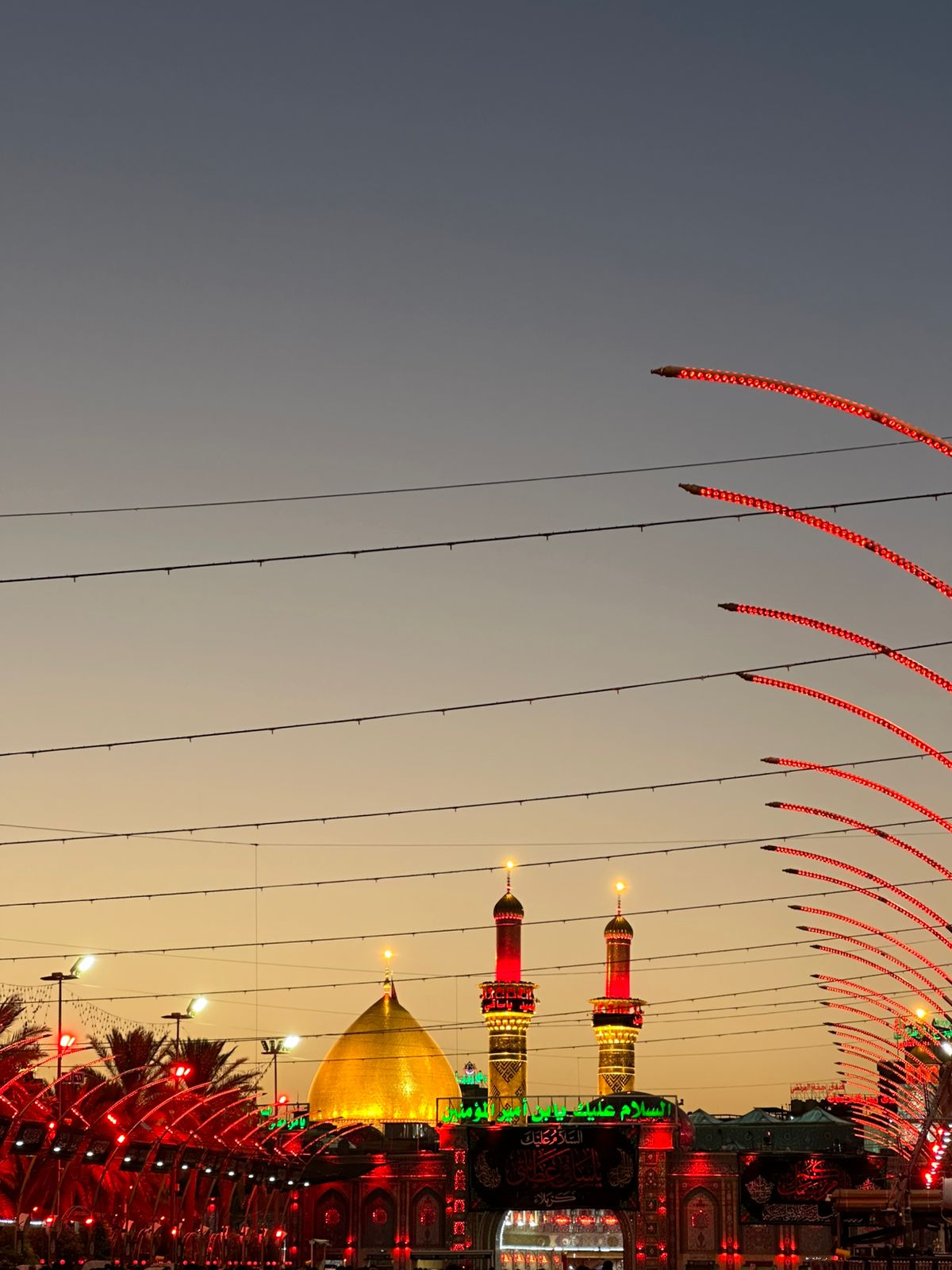
10th Muharram (Ashura): The day everything breaks. The air is heavy. Pakistanis are given the time of 5:00 AM on the dot to enter the shrine of Imam Hussain(as), doing azaadari and simultaneously walking into Bain ul Harmain and into the shrine of Hazrat Abbas (as). It is an unexplainable moment, post azaadari, Brothers and friends hugging their brothers and giving condolonces to each other. At a certain point it felt like my ribs might crack from the sheer weight of the sadness.
On this day, Shaam-e-Ghareeban — the night of desolation — arrives. The camps are darkened to symbolize the burning tents of the Prophet’s family. No loudspeakers, no wails — only a silent, haunted grief that blankets Karbala like nightfall. To witness this is to be reborn.
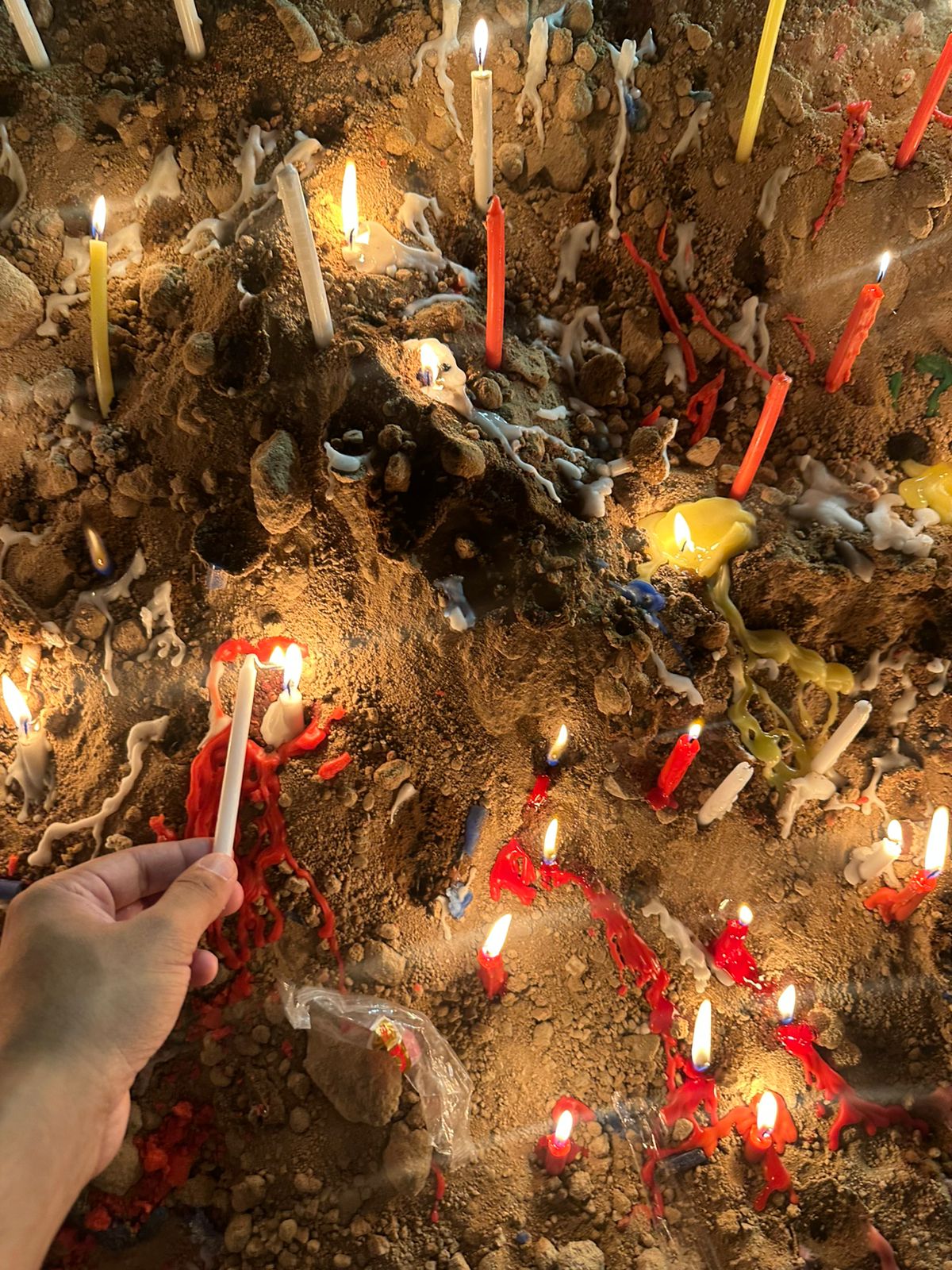
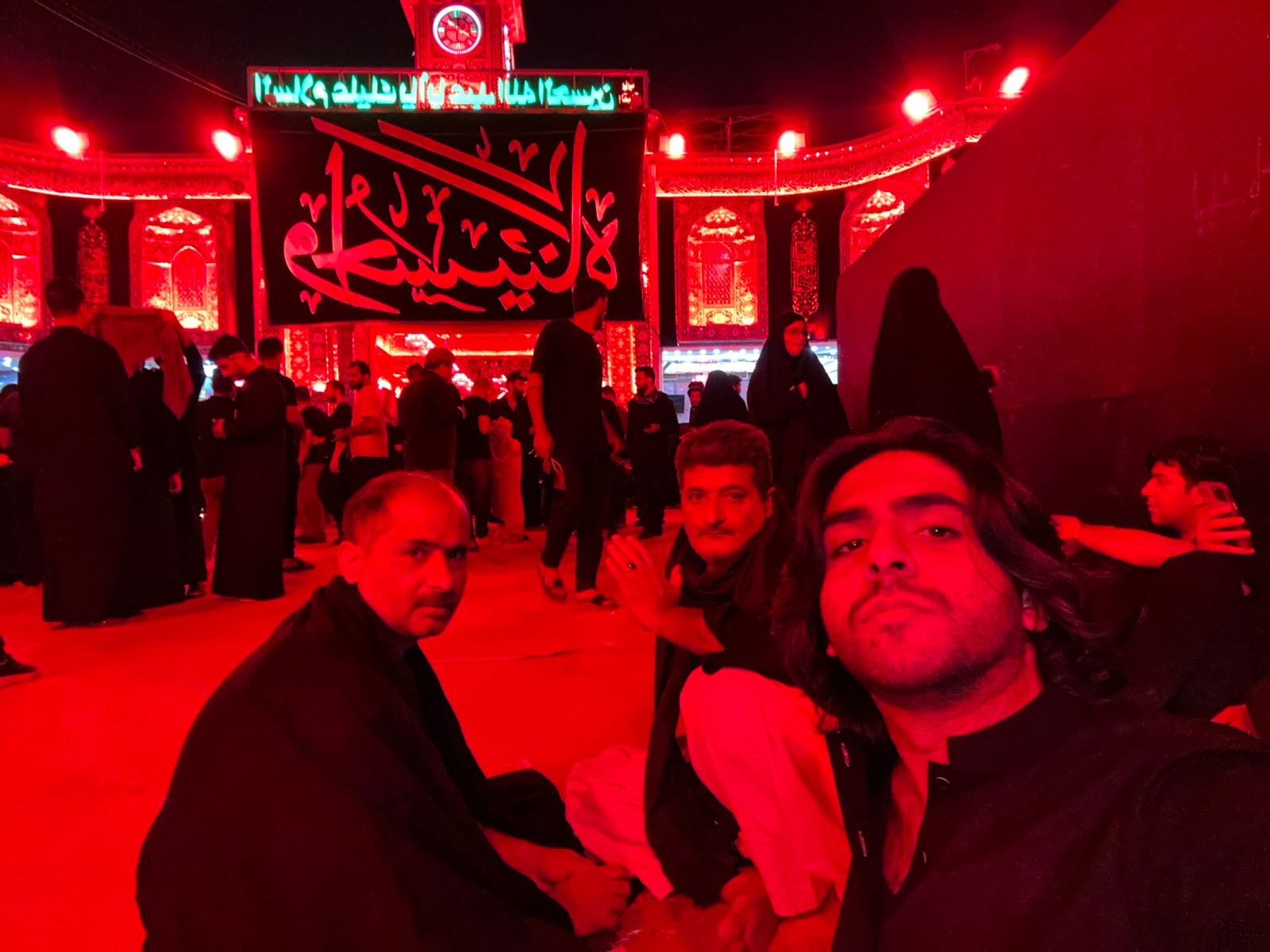
Whenever I stepped inside the shrines, I felt the time bend. The scent of the Zarih, the sacred air, the thousands of tears that have soaked this earth—it heals something buried deep. My heart, heavy with life’s sorrows, suddenly feels held. The grief of Karbala, the remembrance of unimaginable sacrifice, doesn’t weigh me down—it elevates me. Imagine you grow up listening to those tragedies of where Imam Hussain (AS) was beheaded, where Hazrat Abbas (AS) fell, where Sakina cried, where Ali Asghar’s fragile body was struck, where Ali Akbar (as) took his last breaths. And suddenly, you are standing there. On that very land. Breathing. Existing. The exact same spots you’d cry to for hours when listening in your home town, and now that you are seeing the Maqtal Gah right infront of your eyes, you are in Sabr. Karbala is not just about mourning. It is a reunion—with faith, with the Divine, with your truest self.
What astounds me every year is the humanity on display. Karbala during Ashura transforms into a living symbol of unity—millions of people from every country, every language, every culture, a gathered with one purpose: Hussain. Children offering water in memory of Hazrat Abbas(as). Strangers begging to serve you just so the Ahl-e-Bait (AS) may smile upon them. Where else in the world do you witness such unfiltered love and devotion?
Among the most poignant moments of my journey is Fajr Azadari in Bain-ul-Haramain — the stretch between the shrines of Imam Hussain (AS) and Hazrat Abbas (AS). After morning prayers, Pakistani pilgrims from all over the world gather here to offer pursa — their heartfelt condolences — to the Imam. In that sacred hour, with the air still and the soul soft, Noha Khuwans begin reciting laments.
These reciters are the guardians of grief and the protectors of truth. I am fiercely critical of them and believe not all deserve this station. It is not mere performance. It is an amanah — a trust. For me, very few have lived up to the code of ethics, humility, and spiritual conduct this role demands. Mir Hasan Mir and the Kazmi Brothers are among those rare few.
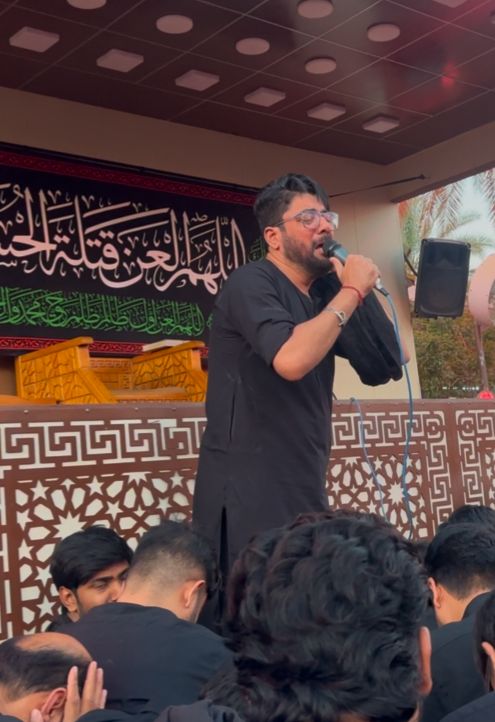
Mir’s humility and authenticity are unmatched. He doesn’t recite — he bleeds. But for me, I must admit, he stood just below one man — the incomparable Mir Taqallum. The Kazmi Brothers, especially, hold a piece of my soul. Moazzam Kazmi, especially, has always honored my connection to Azadari with immense respect. We stay in touch, and despite his demanding schedule, he never fails to guide me.
My last memory of my father is tied to their Noha. In our Imambargah, with tears rolling down his face, he took his final breath — while the Noha for the Bibi Sakina (sa) echoed in the background. That moment, that melody, that goodbye — it sealed my love forever. Even in loss, my loyalty to the family of the Prophet remained undivided. If my father — the sun of my life — were to be returned to me a thousand times and taken away again, I would still choose the love of Hussain a thousand times over. Divine love rewrites the laws of grief.
In Karbala, I float like a bird, free from ego and worldly attachments. I am shown secrets I cannot explain. I hear God say He loves me. In Najaf, at the shrine of Imam Ali (AS), I feel anchored. In Karbala, I become light. Karbala is not a place — it is an encounter. It is where I meet God, again and againn a crowd of millions, I find individual love. In every tear, every matam, every whispered Ya Hussain, I find purpose.
This article is not a confession. This is a celebration — of love, grief, service, and light. This is who I am. A lover in couture, yes. But a lover, nonetheless.
Karbala shows me who I really am. Not the PR strategist. But the mad lover — who walks barefoot to the gate of Hussain (AS), begging for a single glance. I return to fashion with the same madness I left with — but now deeper, purer, lighter. And as long as I breathe, I will return to Karbala, to Najaf, to my Imams in Iraq— again and again — to the source of all beauty, all truth, all love.
